This Farmworker Collective is Organizing For ‘Milk With Dignity’ and More
Migrant Justice, a Vermont-based, farmworker-led organization, is pushing for fair wages for the workers that underpin the US dairy industry.
This Farmworker Collective is Organizing For ‘Milk With Dignity’ and More
Migrant Justice, a Vermont-based, farmworker-led organization, is pushing for fair wages for the workers that underpin the US dairy industry.
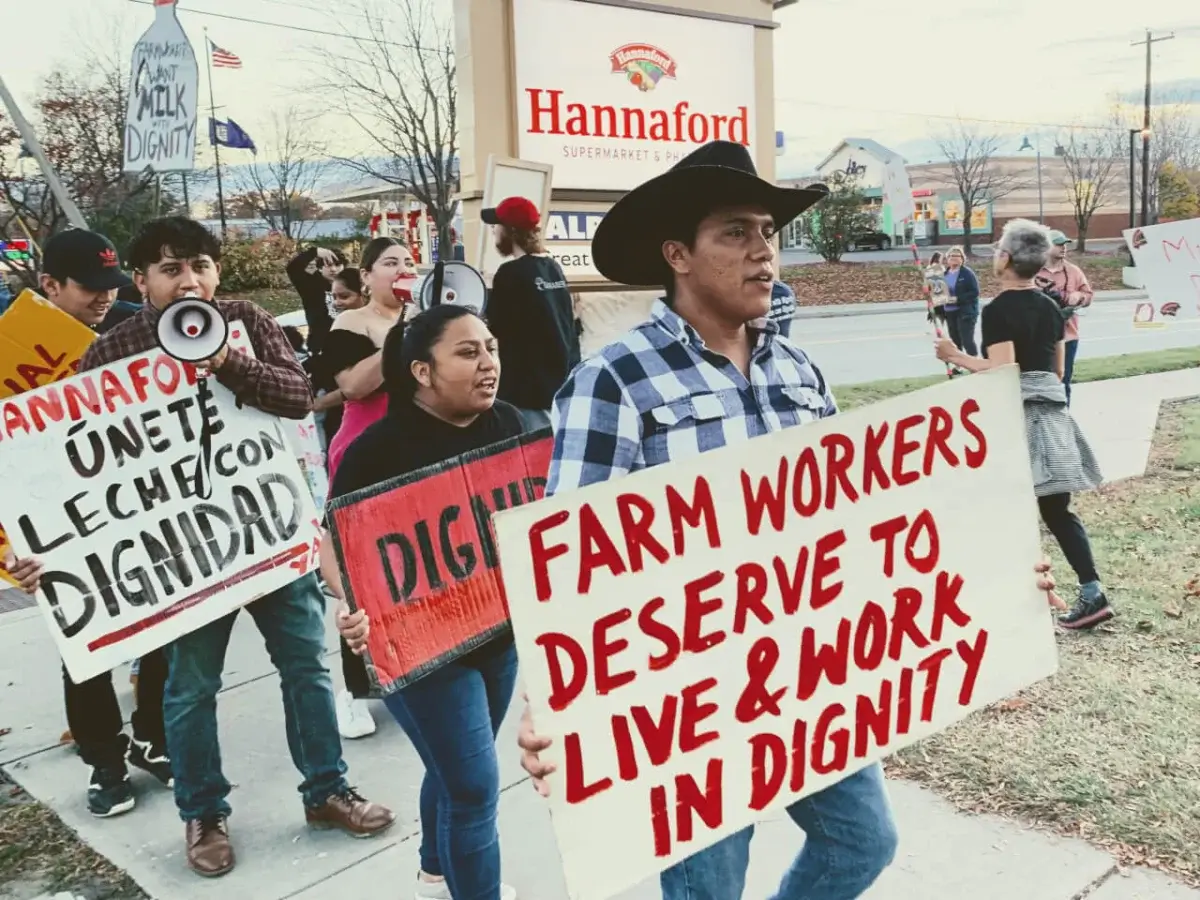
Farmworkers and consumers picket in front of Hannaford Supermarket as part of a month of action in October 2022.Photography courtesy of Migrant Justice.
Enrique Balcazar remembers the disillusionment he felt the day he arrived in Vermont from Mexico to work on a dairy farm for the first time.
He was excited to begin a promising new life in America, with opportunities and comforts he could never have imagined back home. But this fantasy was quickly shattered by the harsh reality of dairy farming.
“When I got there, I saw that I was going to be living in an old trailer all by myself,” he says. “No cellphone service. No internet. Just totally alone and isolated. That was my first shock.”
When Balcazar began work a few days later, he didn’t know how to do the job and didn’t understand the language. But he immediately began putting in long hours, seven days a week.
He was excited when pay day came around and he got his first check. “When I opened it, my heart sank. I was only getting paid $3 to $4 an hour,” he says. “For the work I was doing and as hard as I was working, it was much less than I expected.”
Balcazar approached the farm manager, who told him, “it is what it is,” and if he stuck around, he might eventually get a raise.
Months passed, but the raise never came.
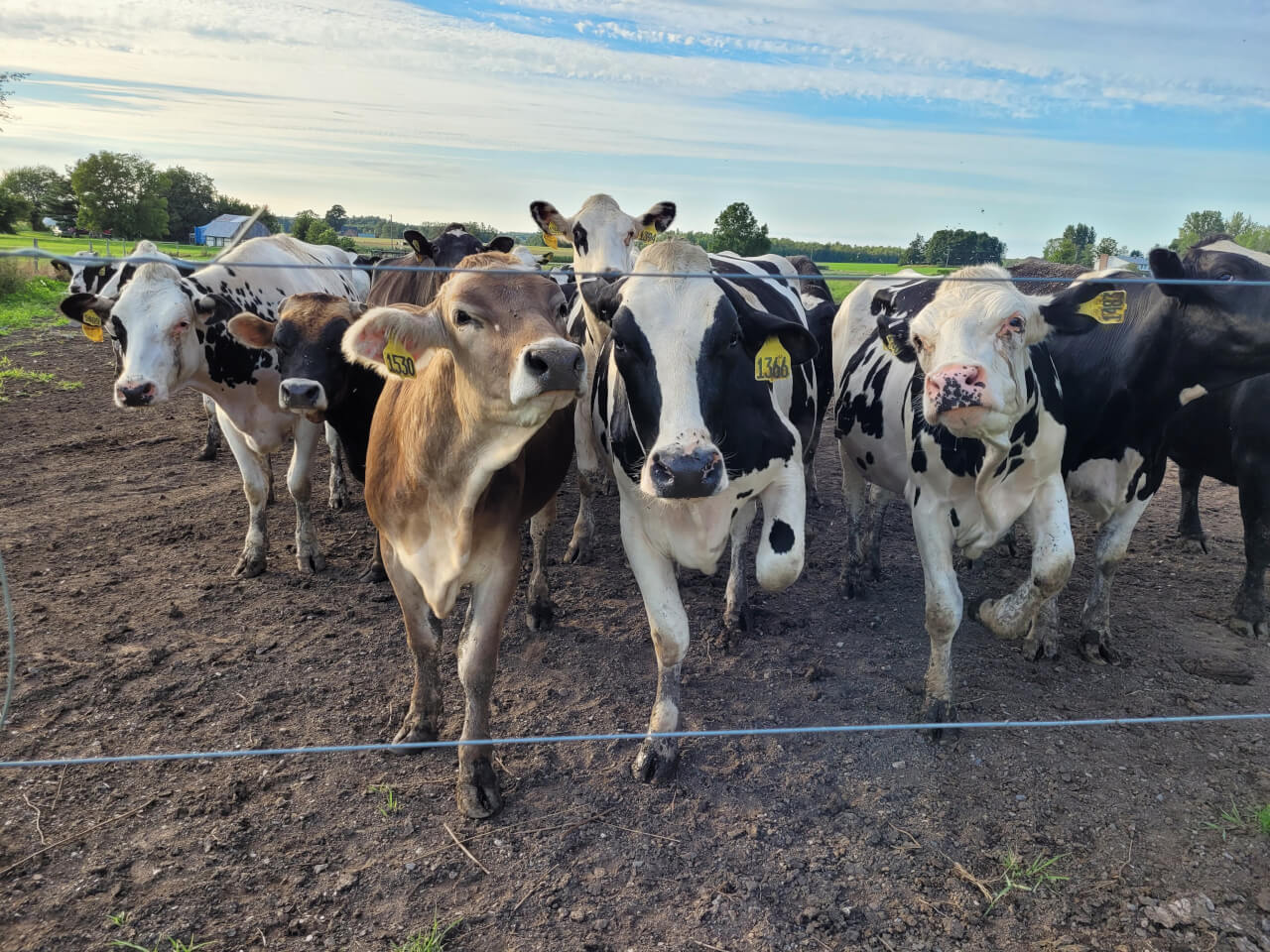
Balcazar’s story is typical for undocumented migrant farmworkers in Vermont, who now comprise the overwhelming majority of dairy workers in the state.
Dairy farms in the region are under immense pressure to cut costs due to industry consolidation and globalization, which allows powerful agribusinesses to place downward pressure on farmers’ incomes. Farmers then hire migrant workers who they can pay far below minimum wage.
For decades, the migrant community has been criminalized and persecuted by a system that wants our labor but doesn’t care about our lives.
The visa program and federal law designed to protect seasonal migrant workers, such as agricultural workers in California, for example, don’t apply to dairy farmworkers in Vermont because of the year-round nature of dairy production.
As a result, the majority of these workers face dangerous work conditions and live in substandard housing. Despite paying taxes, they do not have the rights of US citizens and are under constant threat of deportation by Immigration and Customs Enforcement (ICE) and Border Patrol.
Migrant Justice, a Vermont-based farmworker-led organization, was founded in 2010 in response to the death of José Obeth Santiz Cruz, a 20-year-old migrant worker from Chiapas killed in a tragic workplace accident, and the rampant exploitation taking place on most dairy farms.
Its signature program is Milk with Dignity, which enlists powerful corporations to pay a premium to help raise wages and improve conditions on supplier farms. Compliance is monitored by an independent third-party organization.
Will Lambek, an activist with Migrant Justice, says that one of the reasons that dairy workers created this program is because of the state’s failure to address labor and housing violations.
“The structure set up through the Department of Labor and the Department of Health have left farmworkers out and haven’t protected their rights,” he says. “So, that’s why dairy workers created their own model … to ensure dignified treatment for their workers.”
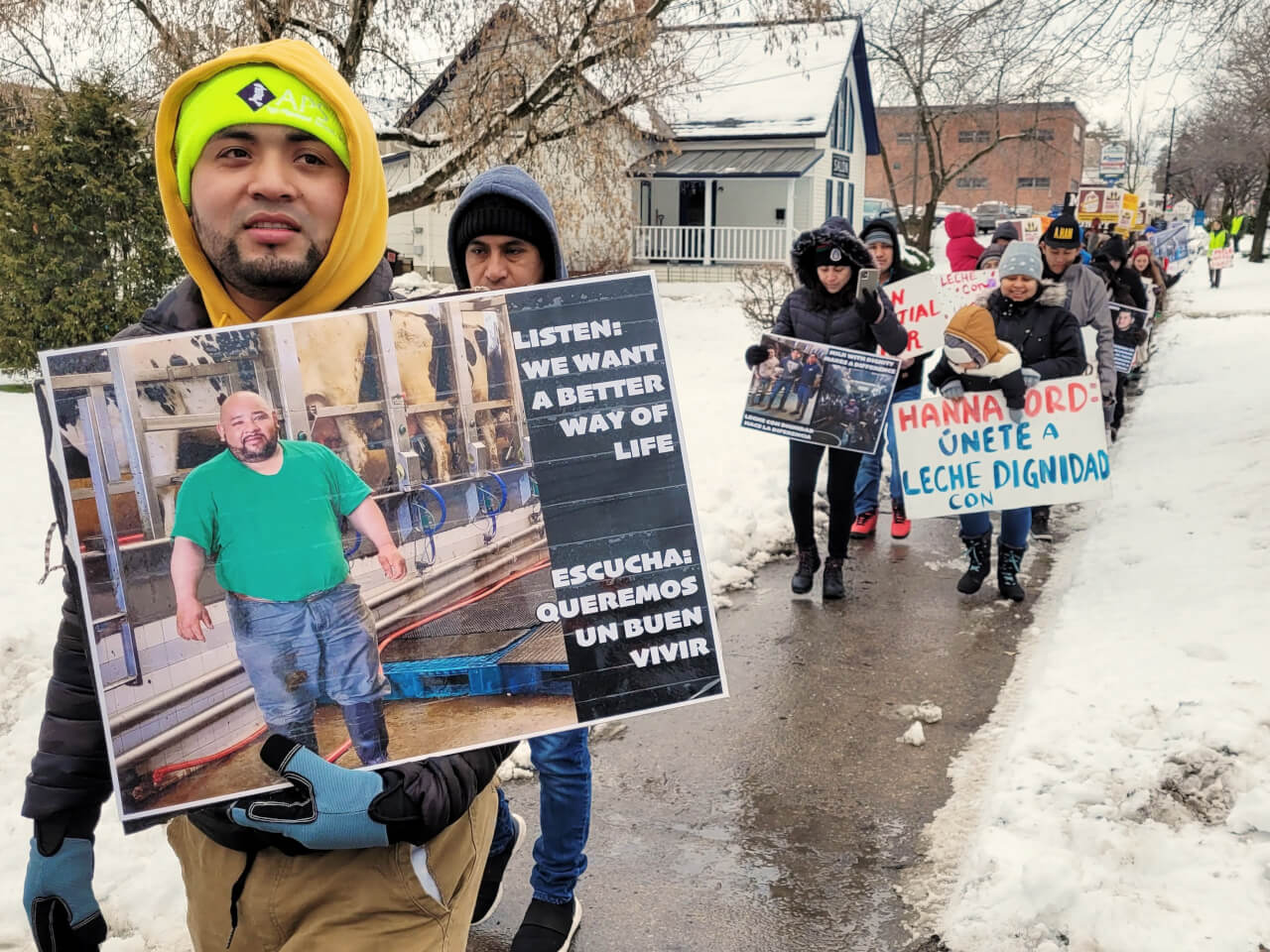
When Balcazar was just seven years old, his father moved to Vermont to work on a dairy farm. He would send money back to Mexico to support his family, but the money wasn’t enough, so in 2011, when Enrique was 17, he followed his father to the United States.
As a child of farmworkers, getting a visa wasn’t an option, so he decided to risk his life crossing the border. It was a significant risk, but it was his best chance to earn enough money to continue his education in Mexico.
READ MORE
Farm Confessional: I’m an Undocumented Farm Worker
That’s how he became one of the millions of mostly black and brown migrants and refugees escaping unstable governments and economic crises caused in part by centuries of imperialism, exploitation, and deliberate underdevelopment. Many arrive in the US to take jobs that offer low wages and no benefits, that would otherwise remain unfilled and that are essential to the US economy.
After a couple of months working on that Vermont farm without a raise, Balcazar found a new position on the farm where his father worked. It was there that two members of Migrant Justice visited him and invited him to a community assembly. That visit would change everything for Balcazar.
When he showed up at the assembly, he felt a strong sense of community because there was a room full of farmworkers, just like him, talking about the same injustices that he had experienced. It was the first time he realized that his experience wasn’t an isolated incident; the problems his community was facing were systemic.
“For decades, the migrant community has been criminalized and persecuted by a system that wants our labor but doesn’t care about our lives,” says Balcazar.
At that moment, he thought about his parents and everything they had gone through. “It left a mark on me and I had a realization of the challenges and the solution: organizing for our human rights,” he says.
Although Balzcazar was working 60-70 hours a week without a day off, he became increasingly involved in Migrant Justice. At the time, it was starting to organize for freedom of movement, allowing migrant workers access to driver’s licenses. “That was really exciting for me because I saw that people were working together based on those common experiences,” says Balacazar. “And so, right there, I was hooked.”
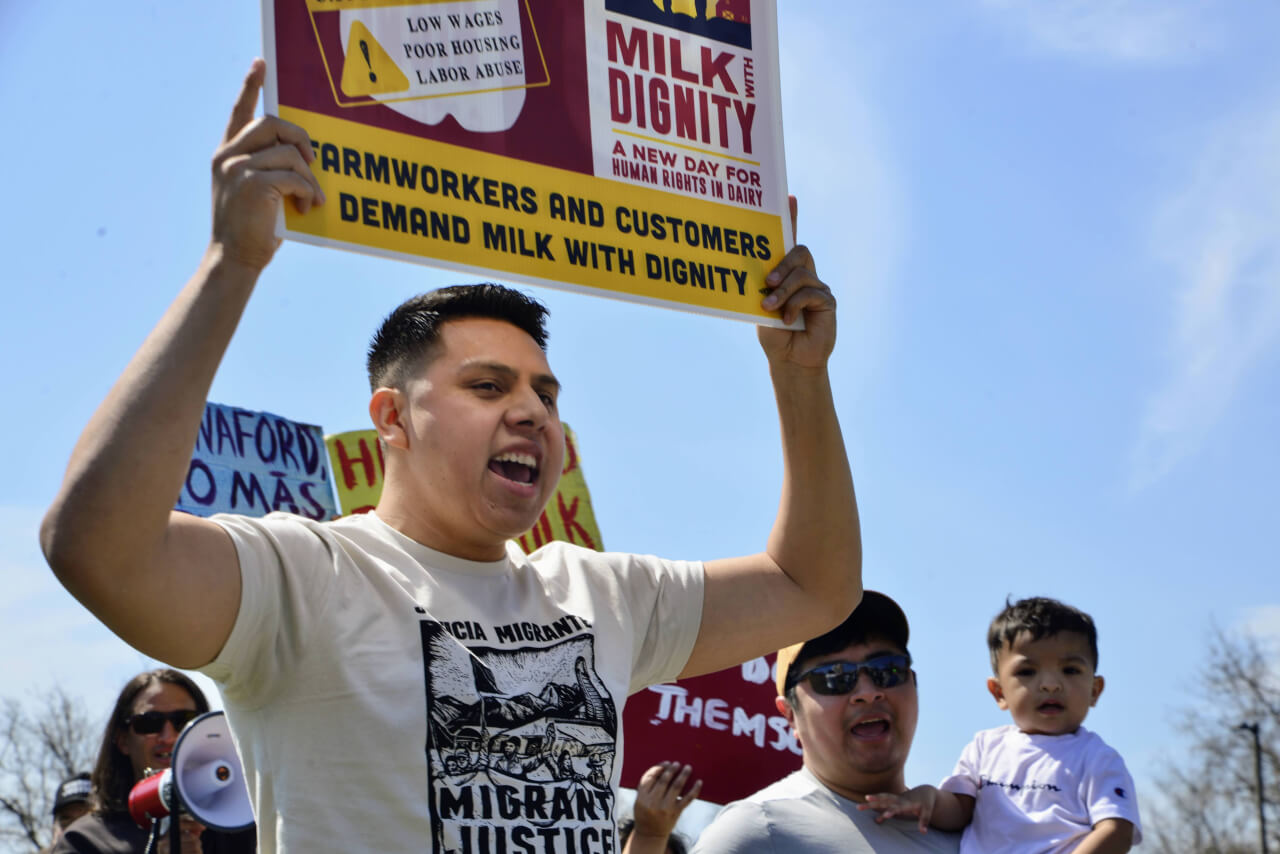
Balcazar has since emerged as one of Migrant Justice’s most visible and vocal leaders. His activism has helped to improve not only his own work and living conditions but those of hundreds of migrant dairy farm workers in Vermont.
After two years of advocacy, Migrant Justice was instrumental in passing a law allowing migrant workers to get driver’s licenses, which has changed farmworkers’ lives in rural Vermont.
Balcazer also became a part of developing the Milk with Dignity program and the campaign to enlist Ben & Jerry’s, which is based in Vermont and is the largest ice cream company in the US with 2022 sales of $910.68 million.
In 2014, Migrant Justice began pressuring the company with protests in front of Ben & Jerry’s stores, picketing its board meetings and marches.
One day, they marched 13 miles to their ice cream factory. “Imagine working 12 hours on a farm, before spending the whole day walking under the sun and going right back to another shift. Those were the sacrifices that we made to defend their dignity,” says Balcazar.
It was during this time that Balcazar and other community leaders were detained by ICE. Eventually, thanks to mobilization from the community, Balcazar was freed.
“That was a really difficult experience, but having gone through it, I want to say this deepened my commitment even more to continue fighting for justice and human rights for my community,” he says.
Migrant Justice eventually won a contract with Ben & Jerry’s in 2017, which covers 100 percent of Ben & Jerry’s northeast dairy supply chain and 20 percent of Vermont’s dairy industry. This has changed the lives of more than 200 farmworkers. Migrant Justice reports that, since the agreement, $3.4 million has been invested in workers’ wages and bonuses and dramatically improving labor and housing conditions. The goal is to expand the program to cover every farm in Vermont and nationwide.
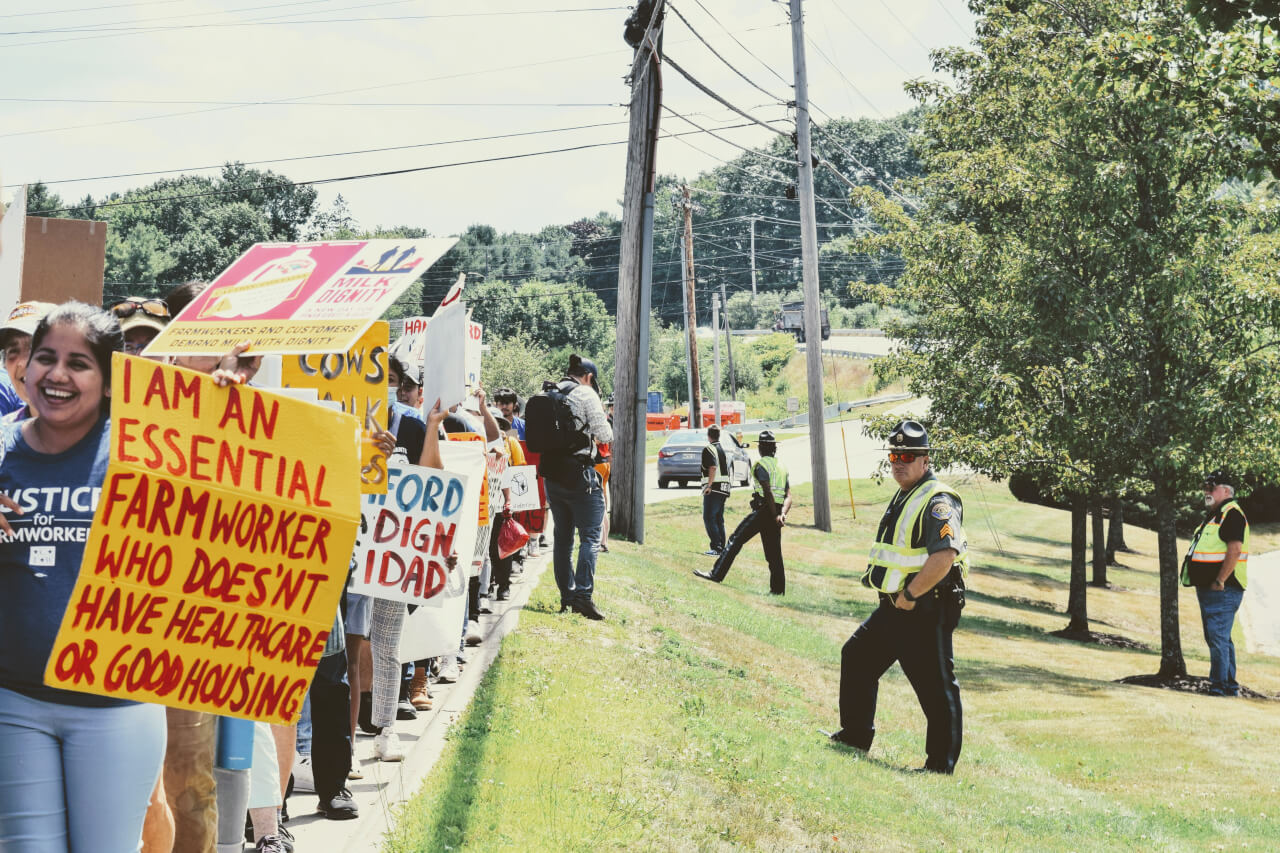
Now, Migrant Justice is trying to enlist Hannaford Supermarket to the Milk with Dignity program. Hannaford is headquartered in Maine, with nearly 200 shops all over New England and New York. It’s one of the largest supermarket chains in the Northeast and a significant buyer of dairy products in the Northeast.
“Hannaford has had a number of responses over the course of the campaign and has consistently rejected calls to sit down with dairy workers in their supply chain,” says Lambek.
Hannaford is a subsidiary of the Dutch agribusiness giant Ahold Delhaize, which reported $91.51 billion in sales in 2022. Both companies claim to be committed to respecting human rights.
However, Migrant Justice alleges that labor and housing rights violations are taking place on supplier farms for Hannaford supermarkets. Hannaford has said it has investigated those allegations and that none have been substantiated.
After facing pressure from the public, one of Hannaford’s responses has been to set up its own hotline, called the “Speak Up” line. Workers in its supply chains can submit a complaint if their rights are being violated. When it made the announcement last year, workers decided to take the company up on it.
“Workers on ten farms submitted complaints, and, through their experience, have shown that this company line is a farce,” says Lambek. “It hasn’t protected any worker’s rights and hasn’t provided any remedy for workers who have been abused.”
Most recently, in June of this year, Hannaford released a statement saying, “Because of the complexity and scope of the issues facing migrant farmworkers, we do not feel this approach is scalable. Nor do we feel that these issues can be solved with a patchwork of loosely affiliated programs like Milk with Dignity working independently.”
Research supports the effectiveness of Milk with Dignity’s approach. Milk with Dignity is an example of a worker-driven social responsibility program (WSR) that is designed and led by farmworkers. It was modeled after the Coalition of Immokalee Workers Fair Food Program and has been shown by a ten-year longitudinal study to be “the most effective framework for protecting human rights in corporate supply chains.” Earlier this year, Harvard Law School published a report calling WSR “a new, proven model for defining, claiming, and protecting workers’ human rights.”
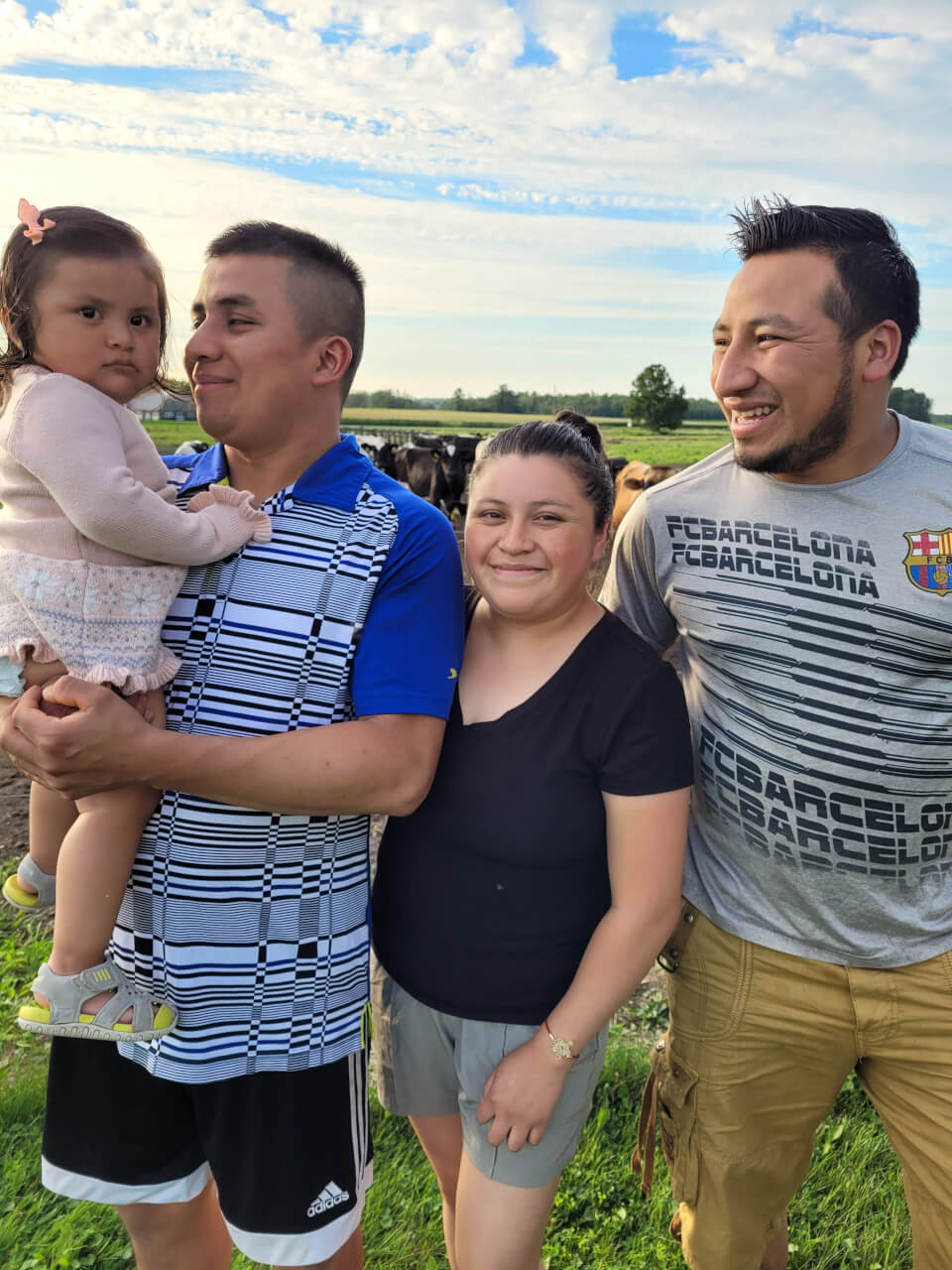
Balcazar can attest to how much migrant workers’ lives improve once their employers join WSR programs such as Milk with Dignity. When he reflects on his arrival in Vermont 12 years ago, the change has been drastic.
“Now, you can drive to the store without fear, you can take your family out to a park and, if you’re working on a farm, then, when you’re working, you have dignified conditions that you deserve,” says Balcazar.
Balcazar and his community envision a future where their Milk with Dignity program expands to cover every farm. Public awareness and support can help them achieve this goal.
“The next time that you drink a glass of milk or eat that pint of ice cream,” he says, “remember: the cows don’t milk themselves.”
Follow us

This work is licensed under a Creative Commons Attribution-NoDerivatives 4.0 International License.
Want to republish a Modern Farmer story?
We are happy for Modern Farmer stories to be shared, and encourage you to republish our articles for your audience. When doing so, we ask that you follow these guidelines:
Please credit us and our writers
For the author byline, please use “Author Name, Modern Farmer.” At the top of our stories, if on the web, please include this text and link: “This story was originally published by Modern Farmer.”
Please make sure to include a link back to either our home page or the article URL.
At the bottom of the story, please include the following text:
“Modern Farmer is a nonprofit initiative dedicated to raising awareness and catalyzing action at the intersection of food, agriculture, and society. Read more at <link>Modern Farmer</link>.”
Use our widget
We’d like to be able to track our stories, so we ask that if you republish our content, you do so using our widget (located on the left hand side of the article). The HTML code has a built-in tracker that tells us the data and domain where the story was published, as well as view counts.
Check the image requirements
It’s your responsibility to confirm you're licensed to republish images in our articles. Some images, such as those from commercial providers, don't allow their images to be republished without permission or payment. Copyright terms are generally listed in the image caption and attribution. You are welcome to omit our images or substitute with your own. Charts and interactive graphics follow the same rules.
Don’t change too much. Or, ask us first.
Articles must be republished in their entirety. It’s okay to change references to time (“today” to “yesterday”) or location (“Iowa City, IA” to “here”). But please keep everything else the same.
If you feel strongly that a more material edit needs to be made, get in touch with us at [email protected]. We’re happy to discuss it with the original author, but we must have prior approval for changes before publication.
Special cases
Extracts. You may run the first few lines or paragraphs of the article and then say: “Read the full article at Modern Farmer” with a link back to the original article.
Quotes. You may quote authors provided you include a link back to the article URL.
Translations. These require writer approval. To inquire about translation of a Modern Farmer article, contact us at [email protected]
Signed consent / copyright release forms. These are not required, provided you are following these guidelines.
Print. Articles can be republished in print under these same rules, with the exception that you do not need to include the links.
Tag us
When sharing the story on social media, please tag us using the following: - Twitter (@ModFarm) - Facebook (@ModernFarmerMedia) - Instagram (@modfarm)
Use our content respectfully
Modern Farmer is a nonprofit and as such we share our content for free and in good faith in order to reach new audiences. Respectfully,
No selling ads against our stories. It’s okay to put our stories on pages with ads.
Don’t republish our material wholesale, or automatically; you need to select stories to be republished individually.
You have no rights to sell, license, syndicate, or otherwise represent yourself as the authorized owner of our material to any third parties. This means that you cannot actively publish or submit our work for syndication to third party platforms or apps like Apple News or Google News. We understand that publishers cannot fully control when certain third parties automatically summarize or crawl content from publishers’ own sites.
Keep in touch
We want to hear from you if you love Modern Farmer content, have a collaboration idea, or anything else to share. As a nonprofit outlet, we work in service of our community and are always open to comments, feedback, and ideas. Contact us at [email protected].by Mickal Aranha, Modern Farmer
September 11, 2023
Modern Farmer Weekly
Solutions Hub
Innovations, ideas and inspiration. Actionable solutions for a resilient food system.
ExploreExplore other topics
Share With Us
We want to hear from Modern Farmer readers who have thoughtful commentary, actionable solutions, or helpful ideas to share.
SubmitNecessary cookies are absolutely essential for the website to function properly. This category only includes cookies that ensures basic functionalities and security features of the website. These cookies do not store any personal information.
Any cookies that may not be particularly necessary for the website to function and are used specifically to collect user personal data via analytics, ads, other embedded contents are termed as non-necessary cookies.
I believe all workers, including farm workers, have a right to a living wage. But I also believe all workers, including farm workers, need to be here legally, meaning American citizens or legal immigrants. Raise the wages enough and you’ll get citizens and legal immigrants to do the work. I can pay an extra fifty cents for a gallon of milk.
Basically slave labour, the entire system needs to be overhauled. The big corporations need to be dismantled and stop the duty free movement of product .every country should charge import duties to protect their own producers.